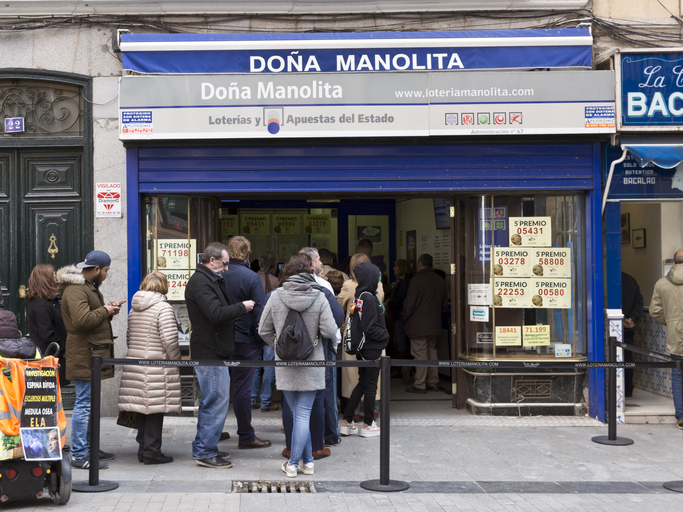Lucky punters celebrated across Spain last Sunday after winning a share of the jackpot in the country’s 2.38 billion euro ($2.64 billion) Christmas lottery, known as El Gordo (the Fat One).
The rules of the draw allow for multiple purchases of the same numbers, meaning this year’s winning ticket – 26590 – was sold by kiosks in many cities, including Madrid, Barcelona and Seville.
Among the vendors was Doña Manolita, a stall in the centre of Madrid that has been selling the lottery for more than 100 years.
Staff at Dona Manolita, considered one of the luckiest vendors, popped bottles of cava as a crowd gathered around.“I’m very happy. We have worked all year to achieve this. This is our reward, to sell ‘El Gordo’,” an employee said.
Dating back to 1812, the lottery has become a major part of Spain’s festive calendar, developing an array of traditions over the years. Rather than creating a few big winners, the prize draw is designed to allow as many people as possible a small win or to at least break even.
In the months leading up to the draw, local bars, companies and associations split tickets among themselves, hoping to celebrate the windfall with their patrons.
Spaniards are often loyal to particular vendors, sometimes making an annual trek to stores considered to be particularly lucky. Numbers echoing the dates of major events such as the death of a pope or a royal wedding often sell out.
On the night before the event hundreds of revelers, some decked out in fancy dress, queue up for a seat in Madrid’s Teatro Real, where pairs of school children pick the winning numbers from two revolving orbs and sing them out to the crowd.
The most common ticket costs 20 euros, offering up to 400,000 euros in prize money, before taxes.
El Gordo is run by the Spanish lottery, and after the winners are paid, the proceeds fund the state budget.
In 2011, as the country slipped into economic crisis, the Socialist government considered privatizing part of the enterprise but never went ahead with the plan. ($1 = 0.9027 euros)
(Reuters Connect.- Reporting by Nathan Allen, Emma Pinedo, Ashifa Kassam, Guillermo Martinez Editing by Frances Kerry)






